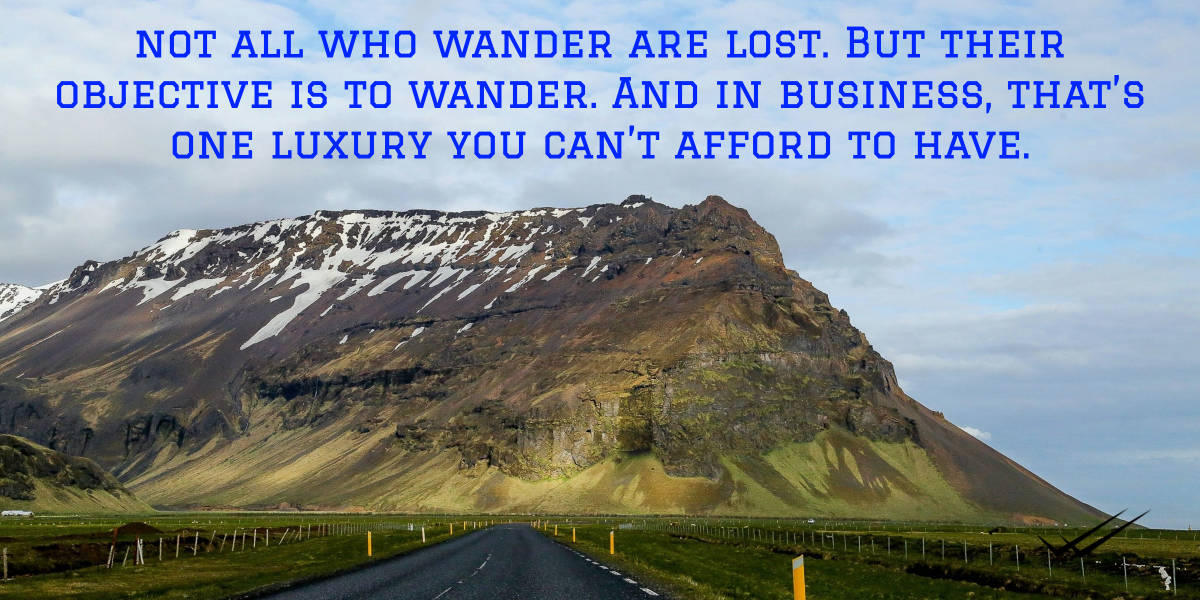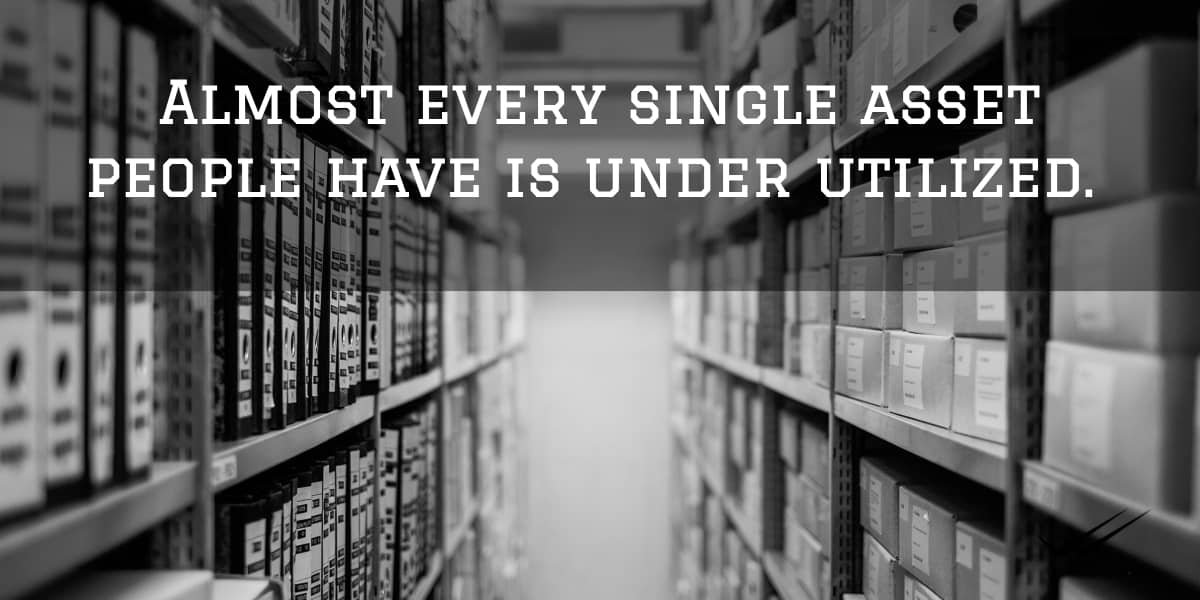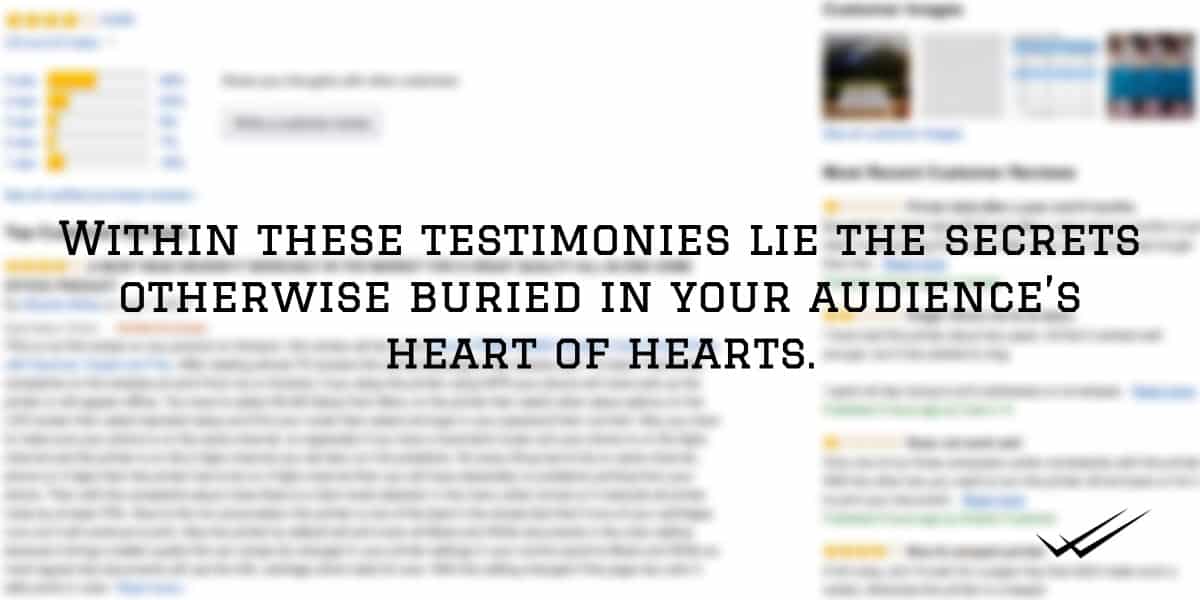
Let's start by discussing where and how we got the idea for creating this six point business strategy checklist.
A few minutes ago, on a forum filled with business owners, entrepreneurs and budding entrepreneurs, I read a question. Obviously, it came from someone who wishes to start a business of some kind.
Here's what he asked (paraphrased)...
How do I go about testing blog ideas?
I mean I have two blog ideas in mind... I can start a blog on national history, or I can start a blog on political strategy.
I'd like to test both of these so I can decide which one to focus on.
How do I go about testing these two blog ideas?
And here's what I told him (again, paraphrased to prevent reverse Google lookup - I'm not trying to insult or besmirch anyone, I'm nice that way. I'm just making a point)...
That's a really bad question. Or at least a really bad way to formulate it.
And I'm guessing your decision to start a blog is based on equally badly formulated strategy.
Here's why...
The first thing you ought to do when you want to come up with strategy is to list your objective. Unless you know what your objective is, you can't come up with strategy. Now, blogging may or may not be a great move for you strategically - but I can't really tell you if it is. Not unless you start by telling me what it is you wish to achieve.

And that's the thing...
You can't formulate strategy without first knowing your objective. That'd be akin to driving without knowing your destination.
Now, of course not all who wander are lost. But their objective is to wander. And in business, that's one luxury you can't afford to have.

You can't listlessly wander around.
See...
Resources are ALWAYS scarce - Be it time, money, energy - there is always a dearth of resources. And whatever precious little or few resources you have, you do not want to waste on wandering around.
So start with the objective first.
What is your objective?
Your strategy will depend upon that. And other things, which we'll talk about shortly. But start with your objective.
That's item number 1 on your checklist. You can not proceed unless you know what your objective is.
Now, there are good objectives, and then there are bad objectives.
The good ones are quantifiable. They have a deadline. They can be measured quantitatively. And they are objective in nature. Not subjective.

Here are some good objectives...
- To acquire 100 clients by December 31, 2019
- To give paid speeches in front of a combined total of 100,000 people before my next birthday.
- To grow our company's marketshare to 40% by toppling the giant competitor XYZ by the end of 2020 without lowering our net profits below 22%.
- To lower the cost of client acquisition by 15% in 30 days.
- To eliminate competition (company ABC) by lowering their marketshare below 10%, while growing ours to 60% or higher in 365 days.
- To successfully launch four products in 2017 - where a successful launch produces $1,000,000.00 in product sales within 7 days of launch.
All these are quantifiable. All come with clear deadlines.
If you asked twenty people if the objective has been achieved by the deadline, all twenty will give you the same answer. And therefore these are good objectives to start with.
Then there are bad objectives...
- To eliminate competition. (really? how? by shooting them through the head?)
- To grow our marketshare. (gain one client or customer and technically you've succeeded)
- To successfully launch a product. (what's the benchmark for success? 40 new social media followers?)
- To double our marketshare (by when? 2099?)
So start with a good objective.
But it has got to be reasonable.
I'll talk about that in a future post. But basically, I can't really with my current resources say my objective is to build a 100-storey, three million square feet skyscraper in Manhattan by the end of next year.
While technically anything is possible, it's always a good idea to shoot for just a little bit higher than last time. I will double my income next year. With the right strategy I might even triple or quadruple it. With a great strategy, I might even add a zero to my income next year. But can I really add five zeroes in one year? Theoretically yes, but my experience proves otherwise.

So a good objective is both reasonable, as well as quantifiable.
Once you have that, you can move on to the next item in this checklist.
You're not ready to formulate a strategy unless you go through this entire checklist...
So here's the second question you must ask...
What Are The Resources I Can Access?
Start listing the resources you can access...

You have your own time, money, energy, and assets, of course. Your own skills too.
Speaking of your assets - there are lots of assets people forget about. I often forget about all the properties I have that I can influence.
Then you have friends and family. You can list some of their resources too... Like expertise. For instance, if you have a CPA in the family, you don't have to worry too much about accounting even if you don't know much about it. Chances are, that family member will be happy to help you get started at a highly discounted price, or even free.
Always keep in mind that someone who knows you, and has underutilized or unused assets will be happy to help you out. Especially if you make a lucrative offer to them.
Then you have strong connections - your clients, your suppliers, your service providers. You may be aware of unused assets they have. And you can definitely ask them for these.
Next, you have weak connections - people whom you don't really know but interacted briefly with - maybe even just online.
And everybody you know has connections too. So if you ask your friends, family, clients, associates, colleagues, suppliers, vendors, service providers etc. a simple question - "Do you know anyone who has XYZ?"... Chances are you'll be introduced to someone soon enough.
And then finally there is always the cold approach...
Find someone who has what you need... And they are not fully utilizing their asset... And cut them a part of the profits... you now have what you need.
Sure, you might have to approach a bunch of people to get someone to say yes, but I'd rather face rejection than let my idea sit around idly.

So to be totally blunt - you do have access to a lot more resources than you think right now. You just gotta start thinking creatively.
Because everything you need - somebody else already has it. And chances are they aren't even using it. I've got a laser printer sitting around gathering dust for a year. I use it maybe once a month.
If you came to me and said "Let me use your printer to print my sales brochures, and I'll give you 2% of all the sales I make." I'd be all in on that deal.
I've got an office I use maybe 8 hours a month. I pay the full rent because I need the exclusivity and privacy when I do use it. But it sits idle, empty and un-utilized for 90% of the time. You could use it for free if you needed to, as long as you vacated it on the days I need it, and covered a part of the rental, or gave me a cut in the profit.
As a matter of fact, if you go deep into this philosophy, then the world becomes a candy store, really. You are totally unstoppable, because you can access any sort of equipment, capital, or resource that you need. So long as you appeal to other people's self-interest, and not just the generosity of their heart.

Almost every single asset people have is under utilized.
Sure, no one is likely to let you use their personal computer or cell phone even when they aren't using it. But for most resources - especially capital intensive ones, and the expensive ones, this is just not true.
Anyone who buys an expensive piece of equipment does it with the intent to profit from it. And nothing hurts more than a hunk of metal or plastic sitting idly in your office consuming space like an elephant in the room and not producing any profit.
So, resources, or a lack thereof isn't a problem.
Just remember - you don't have to buy it, because someone else already did, and he or she isn't even using it.
Therein lies your greatest opportunity.
Let's take an example...
Would you believe me if I told you a 19 year old kid went around to real estate investors to let him convert their property into hotel rooms, and amassed a net worth of over $50 Million by the time he was 23?
Would you?
I doubt it.
That is, unless you already know this guy...

His name is Ritesh Agarwal, and he went to real estate investors who were sitting on duds that tenants just didn't seem to look at and like... and converted these properties into tiny hotel spaces - which he then listed online for reasonable prices. His company is called Oyo Rooms, and you can check out all the hundreds of properties they now offer hotel rooms in by clicking here.
He didn't let a lack of resources stand get in his way. Neither should you.

But to begin with, you need to know what resources you have at hand immediately. So start by listing those out. And that'd be the second item on the strategy checklist.
Moving on...
What Are Your Weaknesses?
Just as it is imperative to think about your strengths and the resources at hand... it is equally important to think about, and list your weaknesses.

- Does no one on your team have great selling skills?
- Are you starting alone, and don't know how to hire the right people?
- Do you have absolutely minimal resources (including time) of your own?
- Do you have no statistical (or even empirical, or even anecdotal) evidence that your product will sell?
- Are you going to be a pioneer in some market/industry?

- Do you think of yourself as the "idea guy" and not much of an "execution person"? Because this is one thing that'll separate daydreamers from champions. Champions not only have great vision, but also great work ethic, and great discipline. Without those things, nobody succeeds.
- Do you have nobody who knows how to build a website?
Okay the last one is a bit stupid, because lack of know-how can no longer keep anyone down. Anyone with half a brain can go online and learn how to do almost anything.
But you have to know what your weaknesses are.
Only once you list your weaknesses on paper can you work on effectively remedying them.
Like I said, if you don't know how to do something... that isn't really a problem. You can always learn. People will distill their lifetimes of expertise in a $15 book and sell it to you. Experts create free videos and run free blogs that you can watch and read. So there is no dearth of information and knowledge. You can always figure out how to do things.
But if it's a skill set you lack, you'll have to find a partner or an employee who has it.
If it's work ethic someone lacks, he'll have to quit now because that's the only viable strategy quitters inevitably resort to.

If you're going to be a pioneer, you'll have to weigh the risks against rewards and become comfortable with the worst case scenarios. And you will need other people's help in simulating the worst case scenarios because people are often overtly optimistic about their short term prospects.
So what are your weaknesses?
Personally, I hate doing anything that is mundane and doesn't yield disproportionate rewards, so I rely on software to handle most of my social media for me.
I also hate designing websites and writing copy. I hate handling logistics. So I need other people taking care of that for me, and fortunately, they do... for an increasingly smaller fee.
I hate weeding through the non-prospects, so I have to hire other people to do that for me. Or create elaborate funnels that do that for me. But it is a weakness - one that I have to actively remedy all the time.
You have got to know your weaknesses.
I also hate networking just for the sake of it. I hate it. First of all I am a germaphobe, so I hate shaking hands with random strangers. But that's just part of it.
I also dislike how ineffective it is. I hate how inauthentic everyone is. Everybody's got an agenda, and that makes conversations unnatural. They'll pretend to be interested in your product, or expertise, but they hide what they are really after.
Look, if you want me to invest in your business, show me the business plan, and pitch the opportunity. Don't beat around the bush. And don't waste my time.
And please, please don't pretend to be interested in becoming a buyer unless that's what you're into.
List your weaknesses, and then the best solutions you can come up to deal with them so that these weaknesses don't become bottlenecks, or worse, roadblocks for you.
Onwards...
Who Is Your Competition?

All business is competition. If there's demand, there'll be supply. And if there's existing supply, then you're just another supplier. Unless you are really careful about your positioning and branding.
We'll talk about your positioning and branding some other day.
But right now, it's time for you to start researching your competitors.
And here is a list of questions to get you started. Answer these for at least the top three players you are going to compete with...
- What's their marketshare? What's their position?
- How long have they been at this position?
- What are their top three best selling products?
- What are the USP's of their company, and their bestselling products?
- How, and where do they advertise? How much do they spend?
- Do some ghost shopping. Pretend to be their prospect. Play along right until you need to whip out your credit card. Even buy their products if that makes sense. Check out their follow up. Gather their marketing materials. Gather their follow up sequences.
- What are their weaknesses? What did you not like as a customer (or prospect) of theirs? What would you change if you were in charge of running their company? What are they not doing? What are they doing badly?
- Why do people buy from them?
- What do their customers praise them for?
- What do their customers hate about them? Or complain about?
- How relevant are they to their audience now?
All these questions are relatively easy to answer if you pay...
Attention to Detail
As a master strategist, or a budding one, the one skill you'll have to hone is that of paying attention. A great deal more attention than others tend to pay.
Once you answer these questions about your top competitors, you'll have a great understanding of how to proceed. Your own USP won't be too hard to find. You'll know where your strengths coincide with their weaknesses.
You'll also know where their strengths coincide with your weaknesses. This gives you time to prepare, and insulate yourself.
No general worth his salt sends his soldiers on field without carefully studying everything about his opponents' armies. Why'd someone make that mistake in business is beyond me.

And yet millions do. And millions pay the price too.
Fortunately, you won't be one of them. Because you'll go the extra mile, and do all this research. You'll dig deep, and you'll strategize. Won't you?
And once you uncover as much as you can about your competitors, you ask yourself this next question...
Who Are You Selling To?
Giant railroad companies that thought they were in the railroad business were whooped silly by tiny little airliners. Why? Because people heading the railroad companies did not realize what business they were in.
They thought they were in the railroad business. They didn't think about their audience. And they didn't revise their strategy when air travel became known as the more convenient, faster and eventually even cheaper mode of transportation.
They really were in the transportation business.
Their audience did not care about using railroad. They just wanted to get from one point to another. And air travel made it safer, more convenient, faster, and even cheaper.
But by the time railroad giants opened their eyes, it was already too late. The tiny gimmicky little airline companies were now the new giants. And those companies were now the masters of transportation.
Why did the giants fail?
Because they didn't understand their audience. Because they didn't understand the needs and wants of their audience. They failed to realize that their audiences didn't really want rail travel per se. Rather, their travelers just wanted to travel.

Don't make that mistake.
Understand that even the giants selling to your audience may not fully grasp the innate needs and wants of your audience. And if you can better understand your audience, you are in a great position to topple those giants from their perches of enormity.
Exactly how you go about that will vary from industry to industry, and from geography to geography. But what remains constant is that the easiest method falls along these lines...
Read the most polarized reviews of what your competitors are selling. Read the reviews and testimonies of people who rate your competitors' offers really badly, and then read the best reviews they have.
Within these testimonies lie the secrets otherwise buried in your audience's heart of hearts.
In fact make it a habit.
Spend some time each month (or year) reading the most polarized, polarizing positive and negative reviews and testimonials. For your own products as well as your competitors'.

That'll keep you abreast of your market.
Once you've done that, you've arrived at the final point on this six-point checklist...
What Is The Environment Like?
Right now, for instance, I'd not conduct business in India. Even though India is supposed to have a 7% GDP increase, I'd not start any business in India right now. Even though India is a supply-side constrained economy, which means that technically, all I have to do is start. Sales are likely to come in easy.

This is owing to the demonetization move made by the Modi administration. There's a real cash crunch going on over there right now, so I'd rather not run a business. Then again, there's a great deal of political uncertainty over how things are going to play out over the next five years - and the high tax rates as well.
In the same vein, I wouldn't start an import based business in the US right now.
Since Trump's victory, it has become highly likely that soon we'll see custom duties and/or other restrictions on imports from countries like China and Mexico.
So I wouldn't start any business in the US right now if it's success depended on successfully importing something cheaply from other countries.
Those are the political factors.
But you don't have to take into account just politics.
In fact you need to account for trends and forces in all of these dimensions...
Political, Environmental/Economical, Social & Technological
Generally, you want to avoid any and all turbulences. Unless you are the one causing them. Or you are fully prepared to benefit from them.
This is something you'll always have to grapple with. And many times you'll fail to see something coming.
For the most part, it's a challenge. But it's a part of the package. Running a business in a world as turbulent as ours comes with challenges from all sides.
There are political priorities. Then there are emerging technologies that you must try to stay on top of. There are environmental and economical forces at play. Then there are social movements of all kinds rising and falling at all times.
You can't possibly know everything.
But you have to try.
Read news from a couple of different newspapers. Read trade journals. Read technology blogs and magazines.

Ideally you just want to peruse through everything quickly to see if there's anything that may be relevant to you. And if there is, you spend some time understanding it.
Then you pivot.
This is really the best I can give you on this point. As Thomas Paine (or Curran or Jefferson, it's debatable) said...
Eternal Vigilance is the price of Liberty.
No matter who said it, it's true.
You just gotta do the best you can.
And honestly, that's enough.
Especially if you keep paying attention to the most positive and negative reviews on your own as well as your competitors' products... While simultaneously also going through a vast and diverse source of news stories.
And once that is done, you're ready to formulate your strategy.
In my next post, I'll talk about just that. In fact, I'll actually give you a step by step framework for strategy formulation.
Until then, lots of success.

P.S.
Westernston's 6-Point Business Strategy Checklist will soon be available the form of a printable handy little PDF.
If you'd like a copy when that becomes available, click here to subscribe.

We would like to discuss launching your approach in our country.
Please use the contact us link to get in touch with Westernston. While we're not taking on new clients now, we can see if there's a possibility for something.